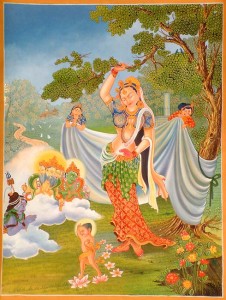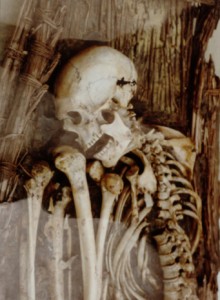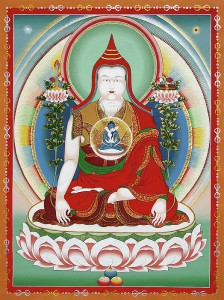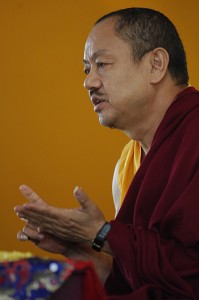
The following is respectfully quoted from “Treasury of Precious Qualities” by Jigme Lingpa, with commentary by Longchen Yeshe Dorje and Kangyur Rinpoche, as translated by Padmakara Translation Group:
The Value of Human Existence:
1. So long enchanted in samsara’s wilderness,
Tormented by the cutting of their heads and limbs,
With seeds of future sorrow hidden in their minds,
Beings long so foolishly for bliss of higher realms.
2. From there they fall again, their states of mind destroying them,
To wander in three evil realms, or as insensate gods,
Or else in barbarous lands, with false views, handicapped,
In places where the Buddhas have not come.
3. On blazing iron grounds without reprieve,
With dreadful weapons wounded time and time again,
The denizens of hell are slain but cannot die–
Still tangled in the webs of hatred’s evil deeds.
4. What need is there to say that hungry ghosts are racked by want?
For food they find not even pus or blood or filth,
And streams and orchards dry before their eyes.
Their vitals burn in endless pain,
Their length of life uncertain,
Measured by the strength of obscuration.
5. Beasts prey on one another, are each other’s food.
And, hunter’s quarry, they are slain by cruel means;
Or caught and tamed, they are reduced to bondage.
Born to such great misery, what can they do?
6. The insensate gods, whose life-supporting karma is immense,
Live long in formlessness; no sorrow do they know.
But lacking support for learning and reflection,
At death they have false views and so lack freedom to progress.
7. Supported on the palaquin of legs and feet,
But yet with minds untouched by virtue,
Barbarous men live sunk and skilled in evil ways,
And wander in the jungles of false morality.
8. Some have senses that belie their promise.
Though they meet with teachers, holy and sublime,
They hear their words like echoes sounding from a cliff,
And suffer in the wasteland of no understanding.
9. Some achieve the great ship [of human life]
With wits like sails wherewith to cross the ocean of rebirth.
But overwhelmed by demons, the espouse false views,
Wherein the Buddha who has come takes no delight.
10. Some fall in blind and lightless chasms:
Ages where no Buddhas manifest.
And though they try to rise, they find no path
And in despair sink down from low to lower destinies.
11. Eight states therefore where beings are not free to practice Dharma,
Where world-destroying gales of sin and suffering rage,
Where merit is defiled in wariness and fear–
O think of this and profit from your freedom!
12. To be a human being in a pure and central land,
With limbs and senses whole, with faith in Buddha’s teaching,
With karmic fortune blossoming, unmarred by evil deeds–
And this is like the wishing-tree, extremely rare.
13. But rarer still, the Buddha, like an udumbara, has appeared within our world.
The flower of Dharma is in bloom. The garden of the doctrine,
Undiminished, still exists, and perfectly do holy beings enter it,
Within whose cooling shade we may find rest.
14. Such fortune in ourselves is rarer than the wishing tree;
Such outer circumstances are like udumbara flowers,
These ten together joined with eight-fold leisure–
Such coincidence will scarce be found again!
15. Examples make it clear–the turtle’s head, the floating yoke,
And numbers also, whereby humans in comparison with beasts
Are like stars that shine by day compared with those by night,
With, in a like proportion, hungry ghosts and denizens of hell.
16. If once aboard this great ship of our freedom,
We now fail to reach the far shore of this sea of pain,
This meeting with the helmsman will indeed have been in vain
For us who strive and fare upon the Dharma’s path.




